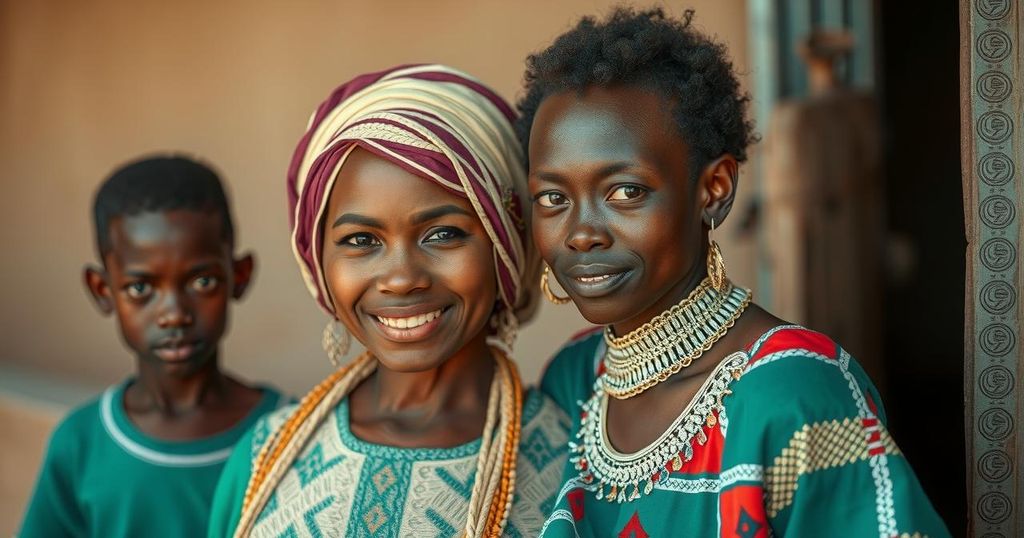Exploring the Bitter Reality: ‘Nawi’ Tackles the Issue of Child Marriage in Kenya
“Nawi” explores the plight of a young girl caught in the grip of child marriage, showcasing her struggles against patriarchal norms in rural Kenya. Michelle Lemuya Ikeny’s powerful performance anchors the narrative, yet the film ultimately falters by prioritizing its social message over storytelling, evolving into a PSA rather than a poignant character study.
In the poignant film “Nawi,” directed by Toby Schmutzler, Kevin Schmutzler, Vallentine Chelluget, and Apuu Mourine, the gripping tale of a 13-year-old girl unfolds as she battles against the shackles of child marriage in rural Turkana, Kenya. Michelle Lemuya Ikeny delivers a heartfelt performance as the titular character, balancing the dreams of academic achievement with the heavy burden of her community’s patriarchal traditions. Despite her compelling portrayal, the film falters as it sometimes prioritizes its political message over cinematic storytelling, risking the emotional depth of its narrative.
Set against the backdrop of Turkana’s arid landscapes, “Nawi” begins with hope and promise as the protagonist earns stellar marks in her entrance exams, only to see her father’s plans for her marriage overshadow her aspirations. The familial dynamics are richly painted, showcasing Nawi’s relationships with her two mothers, each representing the conflicting views within their cultural structure. The film artfully highlights the love and warmth she experiences, which shapes her character into a figure of resilience amidst adversity.
As Nawi grapples with her oppressive fate, Ikeny shines through close-ups that capture her nuanced emotional journey. The film skillfully follows her evolution from a hopeful student to a defiant young woman faced with overwhelming choices. However, as it transitions from personal narrative to broader social commentary, the film begins to lose its artistic merit. Attempts to address child marriage through heavy-handed exposition diminish the delicate portrayal of Nawi’s internal struggles, leading to an abrupt shift towards a public service announcement-like tone.
Despite the filmmakers’ commendable intentions to tackle a critical societal issue, “Nawi” ultimately struggles to balance its dramatic effectiveness with its educational objectives. The resolution may raise awareness, yet it comes at the cost of storytelling, leaving viewers yearning for the poignant, character-driven experience it initially promised.
Child marriage remains a pressing issue in many parts of the world, including Kenya, where cultural traditions often dictate the fate of young girls. “Nawi” offers a glimpse into this reality through the eyes of its young protagonist, highlighting the sacrifices she must make for her family’s economic stability. The film is based on true events and seeks to shine a light on the sacrifices, conflicts, and emotional turmoil faced by girls in similar situations, advocating for awareness and change.
In summary, while “Nawi” presents a vital narrative around the consequences of child marriage, it struggles to maintain its artistic integrity as the focus shifts towards its political message. Michelle Lemuya Ikeny delivers a standout performance that captivates, yet the film transforms into a more formulaic social commentary as it concludes. The filmmakers’ good intentions are evident, but the execution results in a telling that sacrifices nuanced storytelling for an urgent educational appeal.
Original Source: variety.com




Post Comment